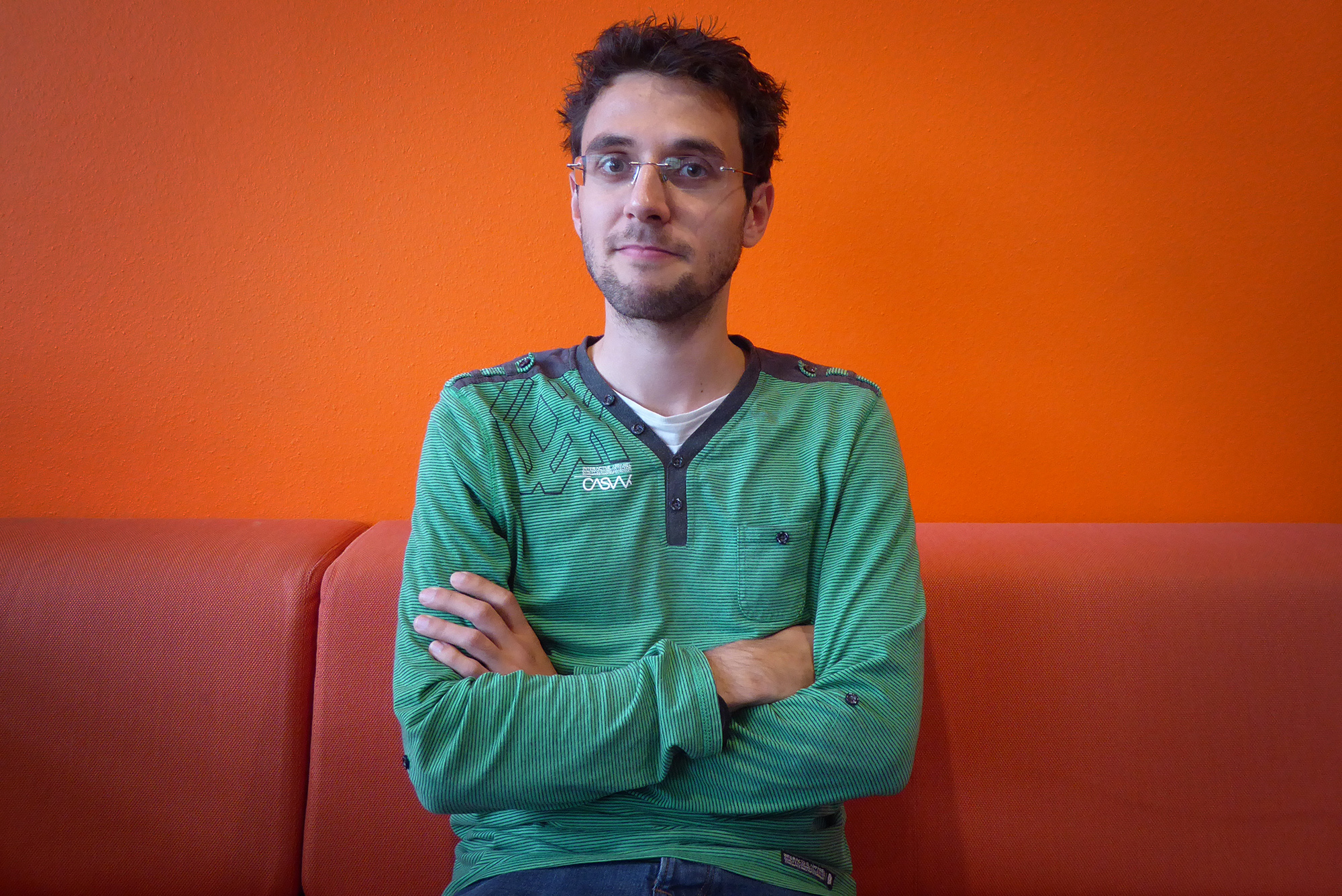Climate researcher Kevin Helfer is one the TU researchers who will join the worldwide #ClimateStrike on Friday 27 September. What motivates him?
Kevin Helver: "Generally in Delft, I feel there could be more involvement." (Photo: Jos Wassink)
Kevin Helfer is a PhD candidate from Germany at the Department Of Geoscience and Remote Sensing at the Faculty of Civil Engineering and Geosciences. He works in atmospheric science where he studies the interaction of clouds and wind.
You joined the scientists for future movement recently. Why was that?
“First of all I am an atmospheric scientist, so I learn a lot about climate and global warming for my PhD. But I’m also an ordinary person and I am worried about global warming and I worry that politicians are not doing enough. I thought this platform was very fitting.”
What does the platform propose?
“What we did in the last few weeks is to come up with a statement which supports the concerns behind recent strikes and protests, and in particular the one in The Hague on Friday 27 September. The statement was set up by consensus so it was not written by a core team of scientists. It is more than 50 scientists who contributed something to the statement that everybody can agree on.”
‘Politicians have to come up with concrete measures’
What is that consensus?
“The statement says that the science behind global warming is profound and true. So we are facing global warming and it is man-made. Our science shows that action has to be taken to deal with it. The action taken so far is not sufficient to reduce global warming to less than two degrees.”
There already is the Paris Agreement that aims to limit global warming to 1.5 degrees. So what’s wrong with that?
“Nothing, the Paris Agreement is great because of all the politicians promising to do their best to limit global warming to 1.5 degrees. What’s happening now in the Netherlands and other countries is that politicians have to come up with concrete measures to achieve this goal. There have been good steps, like the Dutch Klimaatakkoord. But it is doubtful whether this will be sufficient.”
How many people have signed the declaration so far?
“Up to now, about 1,500 people have signed. About 160 of them are affiliated with TU Delft.”
Do you feel that climate change is a big issue on campus?
“People talk about it, especially in our department since we have a lot of people who work on it. But generally in Delft, I feel there could be more involvement. I feel that the interest in politics is not very high here.”
Is that different elsewhere?
“In Münster, Germany, where I did my master’s, students are very political. I believe it has to do with the fact that we are a technical university here in Delft, so we don’t have social scientists that might push us politically. In Leiden for example, I heard that students are very enthusiastic about this declaration and the climate strike on Friday.”
What are you going to do on Friday?
“I will finish my work at 12:00. I will turn off my email and set an automatic reply telling people that I’m on strike. Then I will go to The Hague and join the protest. There will be a demonstration and speeches around the government seat Binnenhof.”
Will the protest be aimed at politicians?
“Exactly. It is in the tradition of student protests on Fridays. Now it is open to everyone, including scientists and university students who support this. It’s really for everyone who is worried about climate change.”
Do you have a question or comment about this article?
j.w.wassink@tudelft.nl


Comments are closed.